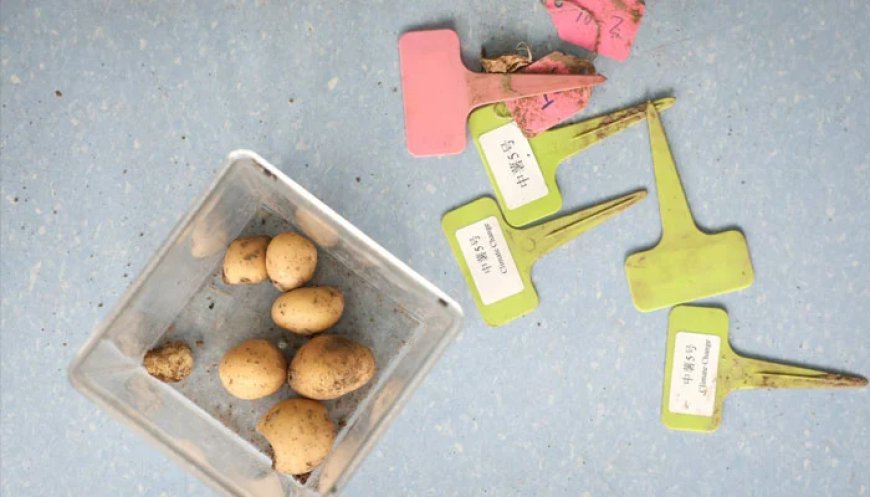Chinese scientists grow 'climate-proof' potatoes to combat food security threats

1. China is world’s biggest producer of potatoes, which are crucial to global food security
In a research facility in northwest Beijing, molecular biologist Li Jieping and his team are making significant strides in addressing the challenges climate change poses to food security, according to Reuters.
The team recently harvested a cluster of unusually small potatoes, one as tiny as a quail’s egg, from a potted plant grown under conditions simulating the high temperatures expected by the end of the century.
Weighing just 136 grams (4.8 oz), these small potatoes were much smaller than typical varieties grown in China, where potatoes are often twice the size of a baseball.
Potatoes are a vital crop for global food security due to their high yield compared to other staple crops. China, as the world’s largest producer, plays a crucial role in ensuring their availability. However, potatoes are highly sensitive to heat, and as climate change accelerates, rising temperatures, along with intensifying droughts and floods, threaten crop yields.
Li and his team are leading a groundbreaking three-year study to examine how higher temperatures will affect potatoes, focusing on China’s two most commonly grown varieties.
“I worry about what will happen in the future,” Li said. “Farmers will harvest fewer potatoes, and that will impact food security.” The study, published this month in Climate Smart Agriculture, reveals that higher temperatures accelerate tuber growth by 10 days but also drastically reduce potato yields by over 50%.
Li’s team grew the crop in a controlled chamber set 3 degrees Celsius higher than the current average temperature in northern Hebei and Inner Mongolia, areas where potatoes are traditionally cultivated in China.
With global warming potentially reaching 3.1°C above pre-industrial levels by 2100, the implications for agriculture are dire. In Inner Mongolia, heavy rains have already caused significant damage to potato crops, introducing diseases that delay harvests.
Seed potato companies like Yakeshi Senfeng are turning to innovative solutions such as aeroponic systems to ensure higher yields and reduce disease risks, particularly from late blight, which thrives in warmer, humid conditions.
The research is a collaborative effort between the International Potato Center (CIP) and the Chinese government, aiming to help farmers adapt to climate change. Li’s team is also developing heat-resistant potato varieties by experimenting with genetic modifications in greenhouses. Li stresses that within the next decade, Chinese farmers will need to adjust planting schedules or move crops to higher altitudes to escape rising temperatures. Failure to adapt could result in reduced yields, higher potato prices, and greater food insecurity.
“We need to act now,” Li said. “If we don’t find solutions, farmers will make less money, and consumers will feel the effects through rising prices.”


















































